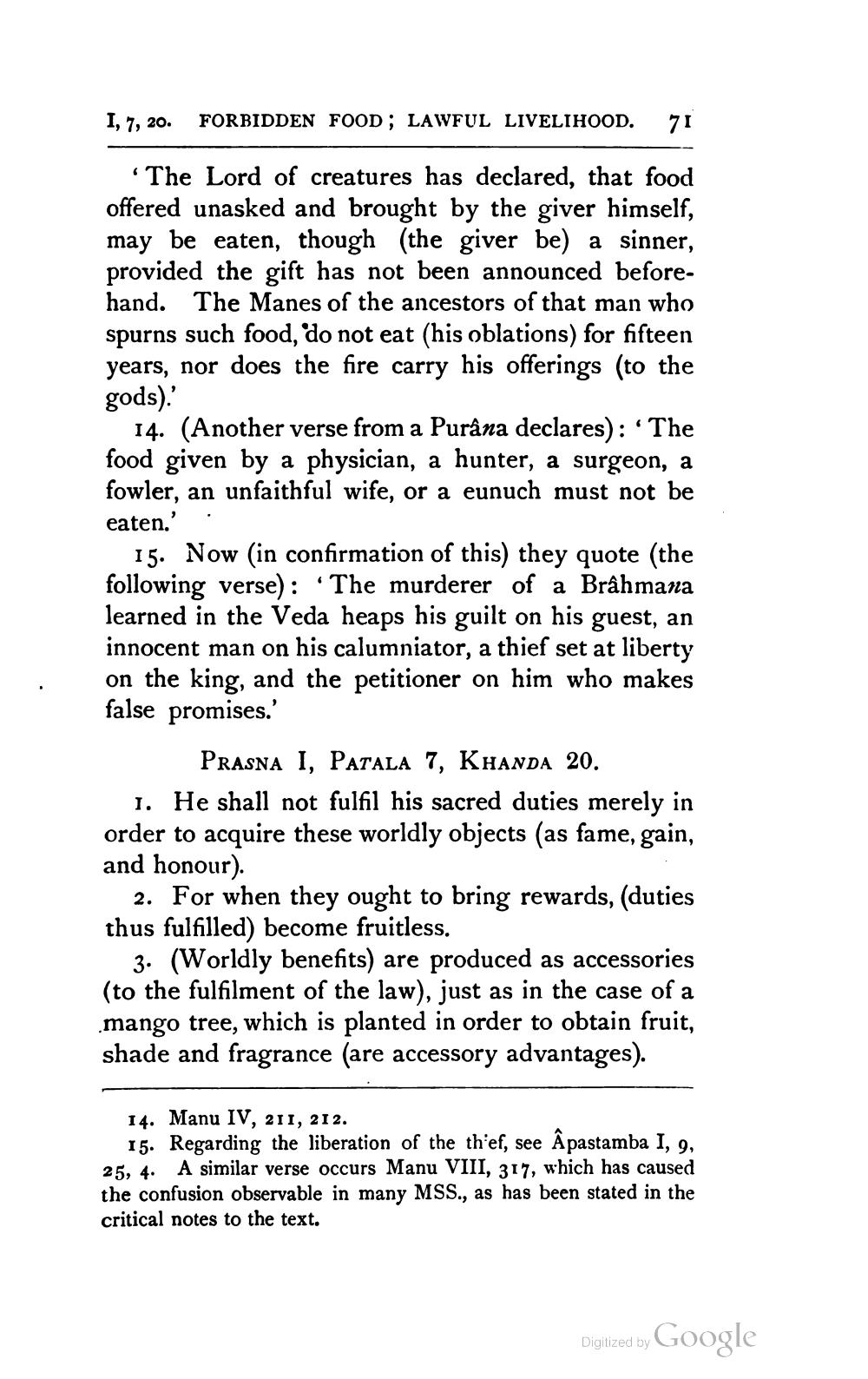________________
1, 7, 20. FORBIDDEN FOOD; LAWFUL LIVELIHOOD.
71
"The Lord of creatures has declared, that food offered unasked and brought by the giver himself, may be eaten, though (the giver be) a sinner, provided the gift has not been announced beforehand. The Manes of the ancestors of that man who spurns such food, do not eat (his oblations) for fifteen years, nor does the fire carry his offerings (to the gods).
14. (Another verse from a Purâna declares): The food given by a physician, a hunter, a surgeon, a fowler, an unfaithful wife, or a eunuch must not be eaten.'
15. Now (in confirmation of this) they quote (the following verse): The murderer of a Brâhmana learned in the Veda heaps his guilt on his guest, an innocent man on his calumniator, a thief set at liberty on the king, and the petitioner on him who makes false promises.'
Prasna I, Patala 7, Khanda 20. 1. He shall not fulfil his sacred duties merely in order to acquire these worldly objects (as fame, gain, and honour).
2. For when they ought to bring rewards, (duties thus fulfilled) become fruitless.
3. (Worldly benefits) are produced as accessories (to the fulfilment of the law), just as in the case of a mango tree, which is planted in order to obtain fruit, shade and fragrance (are accessory advantages).
14. Manu IV, 211, 212.
15. Regarding the liberation of the thief, see Âpastamba I, 9, 25, 4. A similar verse occurs Manu VIII, 317, which has caused the confusion observable in many MSS., as has been stated in the critical notes to the text.
Digitized by Google




